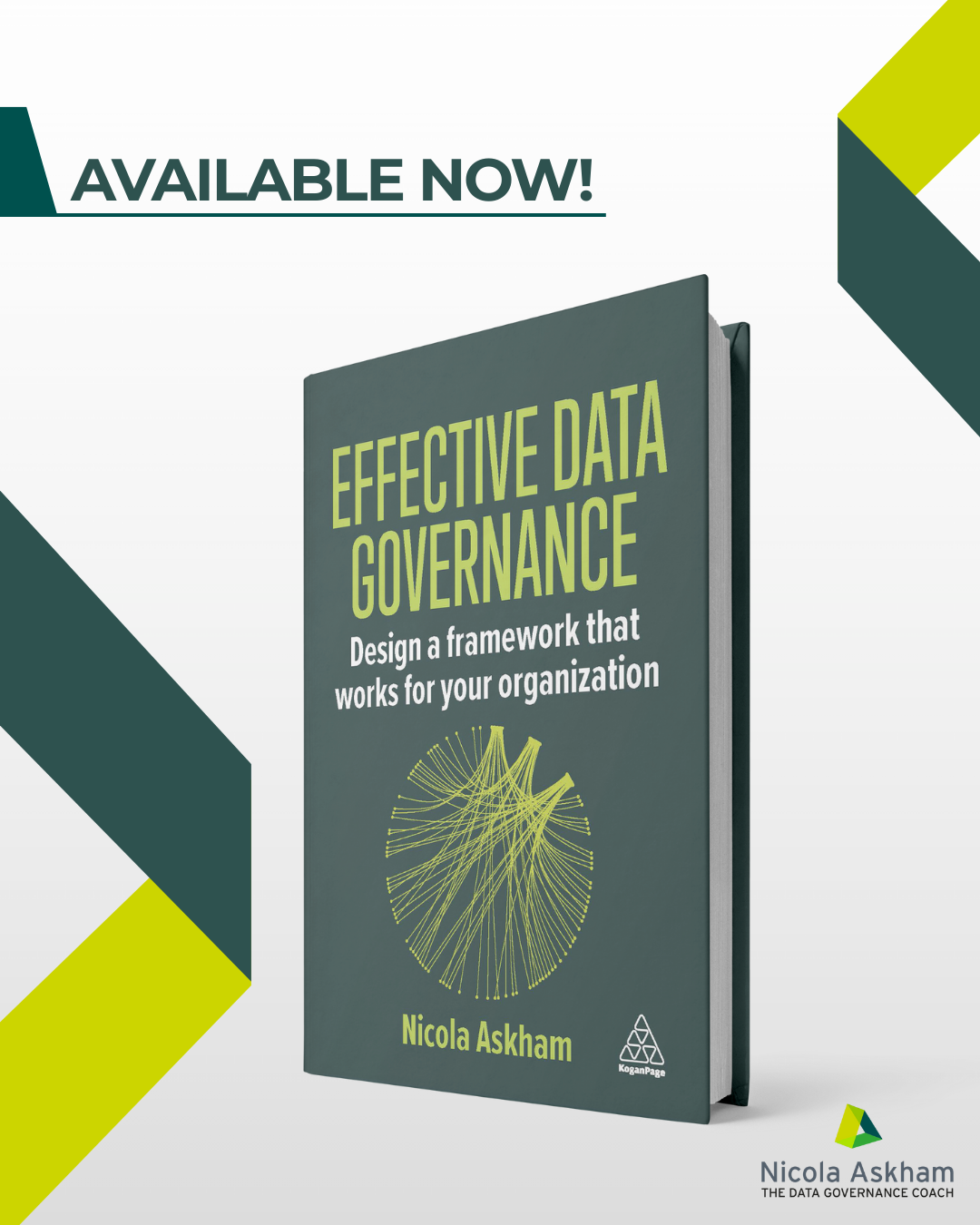Who Should Be Involved in Your Data Governance Framework?
/When designing your data governance framework, a mistake I often see is that not enough consideration is given to who should be involved in the process. This can lead to issues and less than smooth implementation of your Data Governance Framework.
So, I thought I'd take the opportunity to explain in this article just some of the important roles of the people who should be involved in the design and implementation of your organisation's data governance framework.
Data Owners
It's perhaps unsurprising that data owners are the first role I'm including as part of the team involved in designing a data governance framework. In fact, they are one of the most important roles. Whether you're doing much work in their area initially or not, it's crucial to keep them up to speed on what you're doing and how things are progressing.
A good way to do this is by setting up a data governance committee or forum. This allows you to involve your data owners, engage them, keep them updated and get their input into what will and won’t work. You can find more information about Data Governance Forums here.
Project Manager
Next is the all-important project manager. Whether you have the luxury of a formal project manager or someone chosen from your team, you need someone who is responsible for ensuring that your initiative is planned, monitored and reported on appropriately.
If you don't have a dedicated project manager and are instead looking to utilise someone already in your team, consider your data governance manager.
Now, me mentioning this role may of course cause confusion as I repeatedly state that Data Governance is not a project and I would urge you not to call it that. However, at the start of your Data Governance initiative, it is likely that you will need a “project like” phase with tasks and target dates needing to be planned and managed and those are tasks handled with expertise by a Project Manager.
Project Data Governance Manager
You might be wondering why I have made this a separate heading when I was just talking about it in the above role. And the reason is that while utilising your data governance manager as your overall project manager can be a great idea, it must be noted that the two roles require very different skill sets.
A project manager's role is to design and implement a framework. Therefore, they will need skills such as stakeholder management and change management which require impeccable communication and persuasion skills.
On the other hand, your day-to-day data governance manager has skills such as carrying out routines, monitoring and reporting on the framework and often they lead the data quality team too.
If your data governance manager is to also be your project manager then you must ensure they also have project management skills. Sometimes it is the case that a person will thrive in both roles. However, if you don't have the right person for this then you can utilise two separate people from your team to carry out the two different jobs. Just make sure you get your business's usual data governance manager involved at the right stage of implementation for a smooth transition.
Business Analyst
Having business analysts involved is invaluable in helping to understand what the current state of affairs is and provide valuable insight into the current state of data at your organisation. Their input will help you design and implement the framework as well as make a start on documenting what data you have where.
Enterprise Data Architect
An enterprise data architect, or any type of data architect really, can offer brilliant support to your initiative as they have a bank of useful information and knowledge about your organisation, which can help with influencing stakeholders and identifying problem areas with data. This role does not need to support your initiative on a full time basis but will definitely prove useful in those initial stages where you find yourself needing to persuade others of the work you are doing.
Final thoughts
Overall, when it comes to the people working on your data governance framework it's important to realise that there are other people, not just the business as usual roles of Data Owners and Data Stewards, which you should consider involving. That's not to say that the people already on your team don't have these skills, and if they do then by getting them involved in a way which utilises such skills is likely to make your Data Governance initiative more successful.
So, keep an open mind, look out for support and input from anyone expressing enthusiasm about the initiative. Pay attention to who you're getting involved and when to ensure success!
If you want to find out how I can help you design and implement a Data Governance Framework successfully please book a call with me using the button below.









